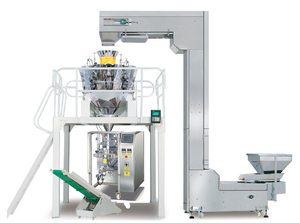International Tobacco Trade: Exploring Global Procurement Opportunities
International Tobacco Trade: Exploring Global Procurement Opportunities
The international tobacco trade is a significant sector in the global economy, involving the production, procurement, and distribution of tobacco products across different countries. Tobacco has been cultivated and consumed for centuries, and its trade has evolved into a complex network of suppliers, manufacturers, and consumers worldwide. In this article, we will explore global procurement opportunities in the international tobacco trade, considering various factors such as market trends, regulatory environments, and emerging markets.
Market Trends in the International Tobacco Trade
The international tobacco trade is influenced by various market trends that impact procurement opportunities. One significant trend is the shift in consumer preferences towards healthier lifestyles and the rising awareness of the harmful effects of tobacco. This has led to a decline in tobacco consumption in some developed countries. However, emerging economies in Asia, Africa, and Latin America continue to experience a growing demand for tobacco products, presenting procurement opportunities in these regions.
Regulatory Environments and Challenges
The tobacco industry operates within a complex regulatory environment, with different countries implementing various regulations to control production, marketing, and consumption of tobacco products. Procurement professionals involved in the international tobacco trade must navigate through these regulations, which often include packaging and labeling requirements, advertising restrictions, and health warnings. Understanding and complying with these regulations is crucial to ensuring successful procurement operations.
Emerging Markets and Opportunities
Emerging markets offer significant procurement opportunities in the international tobacco trade. Countries with large populations and growing middle-class segments, such as India, China, and Brazil, have become attractive destinations for tobacco companies. These markets offer a vast consumer base, and their growing disposable incomes present opportunities for expansion and increased sales. Procuring tobacco from these regions can provide access to new markets and boost overall business growth.
Sustainable and Ethical Procurement
In recent years, there has been a rising focus on sustainability and ethical practices in the procurement of tobacco products. The tobacco industry has faced criticism for its impact on the environment, labor conditions, and public health. Procurement professionals in the international tobacco trade should prioritize sustainable and ethical sourcing practices, considering factors such as fair trade, environmental conservation, and labor rights. Engaging in responsible procurement can enhance brand reputation and meet the growing demand for socially conscious products.
How Profitable Is the Tobacco Industry?
The tobacco industry has historically been highly profitable, although it is important to note that profitability can vary among different companies and regions. Here are some key points to consider regarding the profitability of the tobacco industry:
Revenue and Market Size
The global tobacco industry is massive, with a substantial market size and significant revenue generation. Despite the decline in tobacco consumption in some developed countries, emerging economies with growing populations continue to drive demand, contributing to the industry's overall profitability.
High Profit Margins
Tobacco products, particularly cigarettes, have traditionally enjoyed high profit margins due to factors such as addictive properties, brand loyalty, and relatively low production costs. The pricing power of tobacco companies, coupled with strong brand recognition, has allowed them to maintain profitability over the years.
Market Concentration
The tobacco industry is characterized by a relatively small number of major multinational companies that dominate the market. This concentration of power gives these companies a competitive advantage, enabling them to control pricing, distribution channels, and marketing strategies, thereby contributing to their profitability.
Regulatory Challenges
While the tobacco industry has faced increasing regulations worldwide, particularly in developed countries, these regulations have not significantly hindered overall profitability. In fact, some regulations, such as restrictions on advertising and packaging requirements, have been successfully navigated by companies, allowing them to maintain profitability.
Emerging Markets
Emerging economies present significant growth opportunities for the tobacco industry. These markets often have less stringent regulations, a growing consumer base, and increasing disposable incomes. Tobacco companies have been able to capitalize on these opportunities, leading to enhanced profitability.
What Is the Future of Tobacco Industry?
The future of the tobacco industry is subject to various factors and uncertainties. While it is challenging to predict with absolute certainty, several trends and developments can shape the industry in the coming years:
Declining Cigarette Consumption
The global decline in cigarette consumption, particularly in developed countries, is expected to continue as public awareness of health risks associated with smoking increases. Government regulations, anti-smoking campaigns, and shifting social attitudes towards smoking are all contributing to this trend. As a result, tobacco companies are exploring alternative products and reduced-risk alternatives to offset declining cigarette sales.
Rise of Reduced-Risk Products
Reduced-risk products such as e-cigarettes, vaping devices, and heat-not-burn tobacco products have gained popularity in recent years. These products are perceived as potentially less harmful alternatives to traditional cigarettes. The tobacco industry is investing in research and development to expand its offerings in this space and meet evolving consumer preferences. However, regulations and public perception regarding the safety and long-term health effects of these products remain important considerations.
Regulatory Landscape
The tobacco industry continues to face increasingly stringent regulations worldwide. Governments are implementing measures such as plain packaging, graphic health warnings, advertising restrictions, and higher taxes to discourage smoking and protect public health. These regulations can impact the industry's profitability, limit marketing opportunities, and require companies to adapt their strategies to remain compliant.
Focus on Harm Reduction
Recognizing the health risks associated with smoking, tobacco companies are investing in research and development to develop and promote reduced-risk products. These products aim to provide smokers with alternatives that deliver nicotine but with potentially fewer harmful substances. The success and acceptance of these products will heavily influence the future of the tobacco industry.
Diversification and Acquisitions
To adapt to changing consumer preferences and mitigate risks, some tobacco companies are diversifying their product portfolios through acquisitions or investments in sectors such as cannabis, electronic cigarettes, and pharmaceuticals. These moves enable them to tap into new markets and align with emerging trends, potentially shaping the industry's future direction.
Conclusion
The international tobacco trade presents a range of global procurement opportunities, driven by market trends, regulatory environments, and emerging markets. While developed countries experience a decline in tobacco consumption, emerging economies continue to demonstrate growth potential. Procurement professionals should stay informed about market trends, navigate complex regulatory environments, and explore emerging markets to maximize opportunities. Additionally, adopting sustainable and ethical procurement practices is crucial to meeting evolving consumer demands and ensuring long-term business success in the international tobacco trade.








